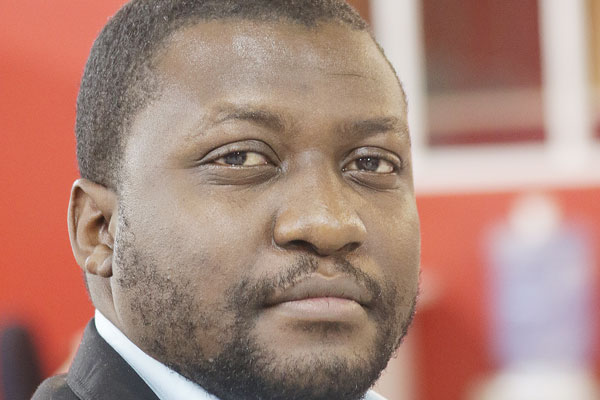
In the past few weeks, the chorus has been how good Zanu PF is at organising and how they have got the rural areas on lockdown.
By NQABA MATSHAZI
There is a defeatism about it, as activists and some in the media seem to think that the opposition cannot come within touching distance of the ruling party, particularly in rural areas.
Adding to this state of hopelessness is the belief that the military would not have “intervened” in the manner they did only to hand over power to the opposition within a few months.
Some speak as if it’s an inevitability that Zanu PF will sashay to power in the next elections, without interrogating what the party is bringing to the table and if the dynamics are still consistent.
While it is true that Zanu PF has always had an iron grip of the rural electorate, it is also true that the dynamics have changed and we are starting on a clean slate, somewhat, where there are many unknowns and a shocker could be brewing.
The fall of Robert Mugabe, while roundly celebrated, could come back to haunt Zanu PF in a way never seen before and could make the 2008 bhora musango child’s play in comparison.
History always provides us with good examples, where we can learn how a party can quickly disintegrate after the exit of a long time ruler.
- Chamisa under fire over US$120K donation
- Mavhunga puts DeMbare into Chibuku quarterfinals
- Pension funds bet on Cabora Bassa oilfields
- Councils defy govt fire tender directive
Keep Reading
In Britain, Lord Liverpool led the country between 1812 and 1827, and he was revered for defeating Napoleon at Waterloo.
He was quite popular for his role in Napoleon’s defeat, but he had very unpopular policies like the corn laws, while the national debt rose during his tenure.
He fell ill and resigned in 1827 and the Conservative party literally came to its knees within three years, as he was the glue that held the party and brought factions together.
With his resignation, old arguments returned to the fore and factionalism was rife and the Tories did not last long in power after that.
While the circumstances are not quite similar, Mugabe had been at the helm for donkey years and he held a fractious party together.
His demise, while spectacular, speaks of his advanced age and probably failure to anticipate what his opponents would do, although others, as the late MDC-T leader, Morgan Tsvangirai insinuated in 2013, argued he was always a puppet of the army.
To give the devil his dues, Mugabe held Zanu PF together – even at its lowest ebb – using a combination of charisma, great oratory skills and copious doses of violence.
His successor, President Emmerson Mnangagwa has not exuded half the charisma that his predecessor had, is not much of an orator and while violence can be used, the promise for free and fair elections coupled with observer missions from across the world, means even the option of violence is taken away from the table.
It would be folly to assume Mugabe does not have a modicum of sympathy in Zanu PF and this could be what comes back to haunt the party.
Mugabe’s fall could have the unintended consequence of emboldening people, who were afraid of him and could not vote against him, and in his absence and for the first time, they could vote for a candidate of their choice.
The question for many is whether they have to fear Mnangagwa in the same way they feared Mugabe, if the answer is “no”, then there is a real possibility of people ditching the ruling party in the upcoming elections.
Not to be complacent, the way the Zanu PF primary elections have been shambolic, could be evidence that its organisational acumen could be overstated and we could be watching a party that is about to crash and burn.
Yes, there have been disorganised primary elections in the past, but not to such a scale, where ballot boxes and paper failed to arrive on time, where candidates have complained about imposition in such an open manner and where the run up to the primaries was quite short.
Zanu PF has in the past got away this, where they have brushed aside those who complain as pesky inconveniences, but this time they might not be able to get away with it.
The ruling party has promised the world free, fair and credible elections, something they have zero experience in and the next election could be Zanu PF’s waterloo.
While Zanu PF has in the past used violence and intimidation as the foundation of its organisational expertise, they may not have that luxury in the next elections.
Thus, while Zanu PF has organised well in rural areas in the past, this should not be used as some bogeyman to scare the electorate to and portray the party as some pervasive machinery without a chink in its armour.
This is no longer the Zanu PF of 2013, where in spite of their differences, they all were united in defeating a common enemy, MDC-T.
Between 2013 and now, former Vice-President Joice Mujuru and Mugabe were kicked out and it would be folly to assume they left without any support.
The odds may be stacked against the opposition because of lack of access to State media and the unrelenting fear of electoral violence, but the game has changed now and Zanu PF’s grip on particularly the rural electorate could be loosening.
These could be epoch defining elections, which the opposition should go into with hope, without negativism and defeatism and with no regard for fear mongering because they are facing a Zanu PF that on the outside may look united, but could be divided to the core, ironically, because of the events of last November.
Feedback: [email protected] Twitter @nqabamatshazi











